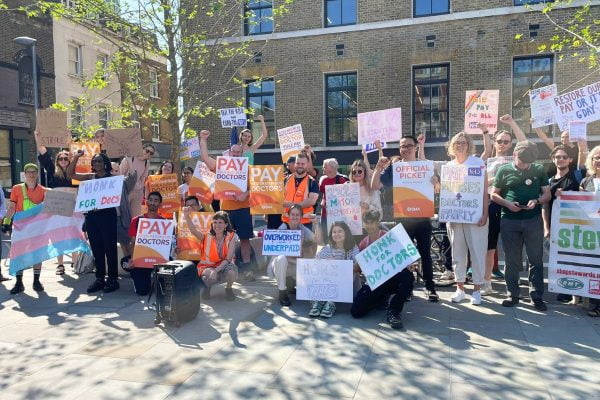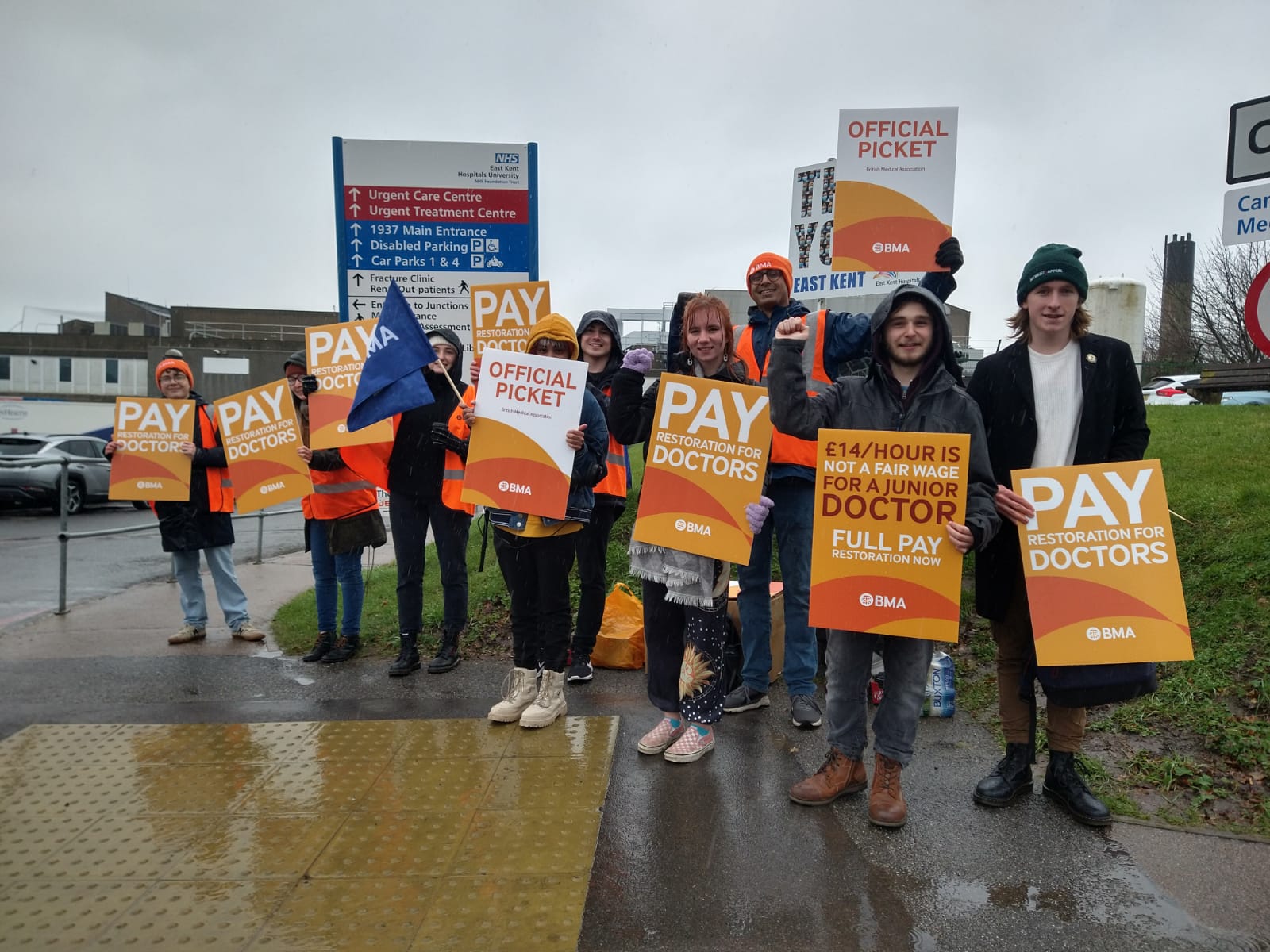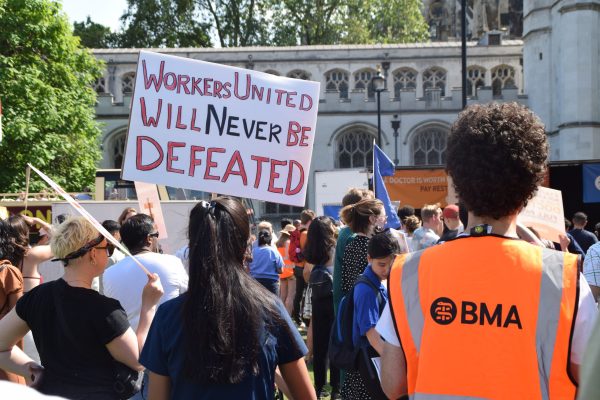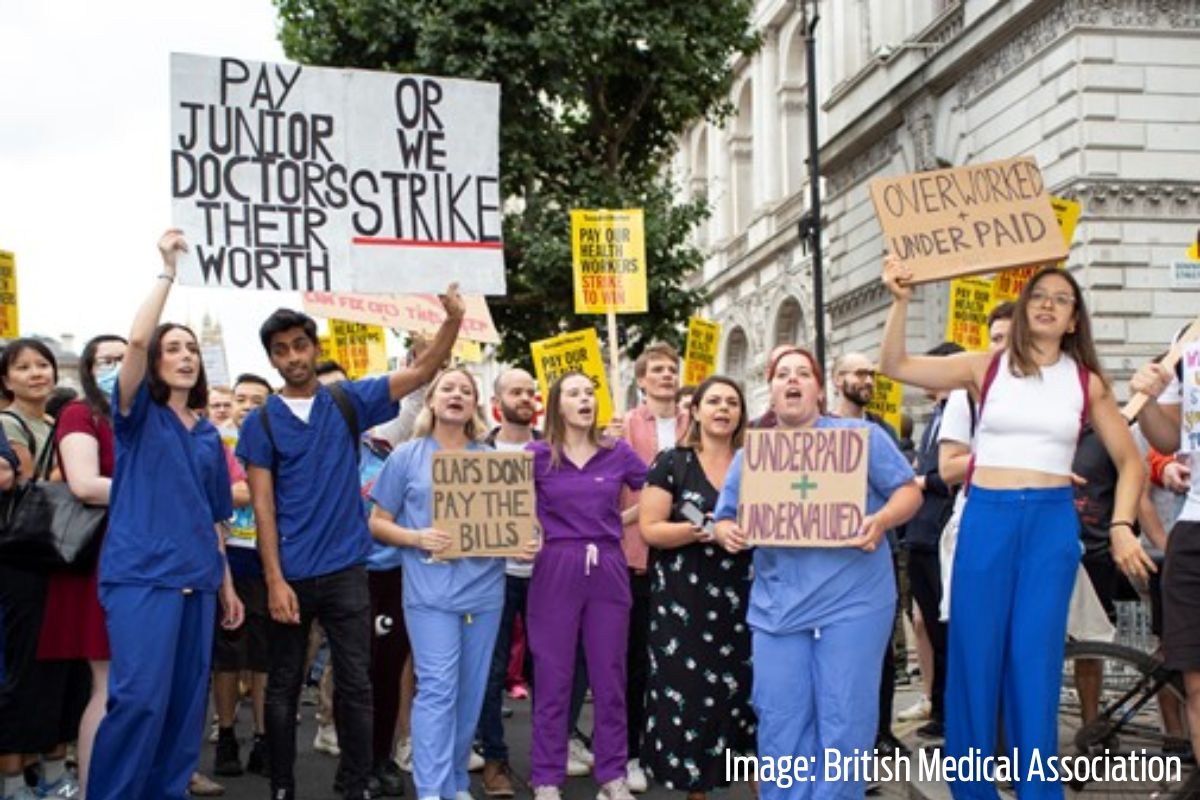Over five days, from 13-17 July, junior doctors organised in the BMA embarked upon the longest strike in NHS history.
But on the first day of action, keen to stave off continued disruption, the Tories announced acceptance of the recommendations of the ‘independent’ public sector pay review body.
For doctors, this means a 6% pay rise, on top of a £1,250 consolidated increase to baseline pay – all to be funded through further cuts.
While some union leaders have shamefully accepted similar below-inflation pay offers, the BMA has come out fighting. Our representatives have correctly stated that we have “no option but to take industrial action” after “suffering years of below-inflation pay awards”.
Ever since the first round in March, the BMA’s strikes have continually escalated in response to Tory belligerence. In the process, junior doctors have been pushed to the forefront of the struggle.
Now we are set to be joined by NHS consultants, who are downing their stethoscopes on 20-21 July, and members of The Society of Radiographers, who are joining the fray on 25-27 July.
Division
Junior doctors have correctly escalated action from month to month. At the same time, we have unfortunately become increasingly isolated from the wider labour movement.
 When our walkouts began in March, they took place as part of a burgeoning strike wave, which culminated in the 15 March ‘day of action’.
When our walkouts began in March, they took place as part of a burgeoning strike wave, which culminated in the 15 March ‘day of action’.
Since then, acceptance of below-inflation deals by other union leaders has splintered the movement, cutting across members’ enthusiasm for a united fightback.
This was particularly apparent with the RCN nursing union, who failed to meet their strike reballot threshold, despite members’ previously rejecting the employers’ offer. This was the result of the union’s leadership consistently pouring cold water on the struggle.
With other unions dropping away, especially in the NHS, the position of striking doctors has been severely weakened. United we stand – but divided we fall.
Indeed, this was the intention of the Tories all along: to pressure the unions into accepting rotten deals, through a conscious policy of divide and rule; of carrot and stick.
Scapegoating
For doctors, the latest deal is an improvement on the Tories’ previous offer. But it still falls far short of inflation.
 Furthermore, it does nothing to tackle the problem of chronic underinvestment and staffing shortages in the NHS. The latest survey from the General Medical Council reports that nearly a quarter of trainees are at high risk of burnout – up by 4% on last year.
Furthermore, it does nothing to tackle the problem of chronic underinvestment and staffing shortages in the NHS. The latest survey from the General Medical Council reports that nearly a quarter of trainees are at high risk of burnout – up by 4% on last year.
The most insidious aspect of the offer is that funding for pay rises will be found through further cuts to services, and by hiking fees for immigrants.
Not only is this a cynical attempt to drive a wedge between British-born and migrant workers, but it is extremely short-sighted. After all, the NHS relies on migrant workers to plug holes in hospital rotas. The Tories’ ‘hostile environment’ will only exacerbate the staffing crisis.
The BMA have correctly come out fighting, stating that: “Doctors won’t stand by while the government scapegoats immigrants for their own mismanagement of the NHS.”
Unfortunately, other union leaders have suspended strike action, and are asking members to accept this subpar deal, playing into the hands of the Tories’ divisive tactics.
Transformation
The first task for junior doctors is to return a Yes vote in the current ballot for the next round of strikes.
Continuing escalation – alongside coordination with consultants and radiographers – will be vital. To foster workers’ unity, cross-union strike committees should be organised at a grassroots level within hospitals.
 But with other public sector unions looking to wrap up their disputes, and the potential for wider coordinated action waning, BMA members must be prepared for a difficult battle ahead.
But with other public sector unions looking to wrap up their disputes, and the potential for wider coordinated action waning, BMA members must be prepared for a difficult battle ahead.
Importantly, the BMA has been transformed on the basis of this struggle. And a new layer of activists has come to the fore.
Members must continue to develop this transformation of the BMA: from professional association into militant trade union.
Above all, the unions must aim their fire at the fundamental problem facing the NHS: capitalism. This latest pay offer shows that what the ruling class gives with one hand, they will snatch away with the other.
The wealth exists to properly fund the NHS and all public services. Organised and mobilised, we must fight to seize it from the bankers and billionaires who hold it.






